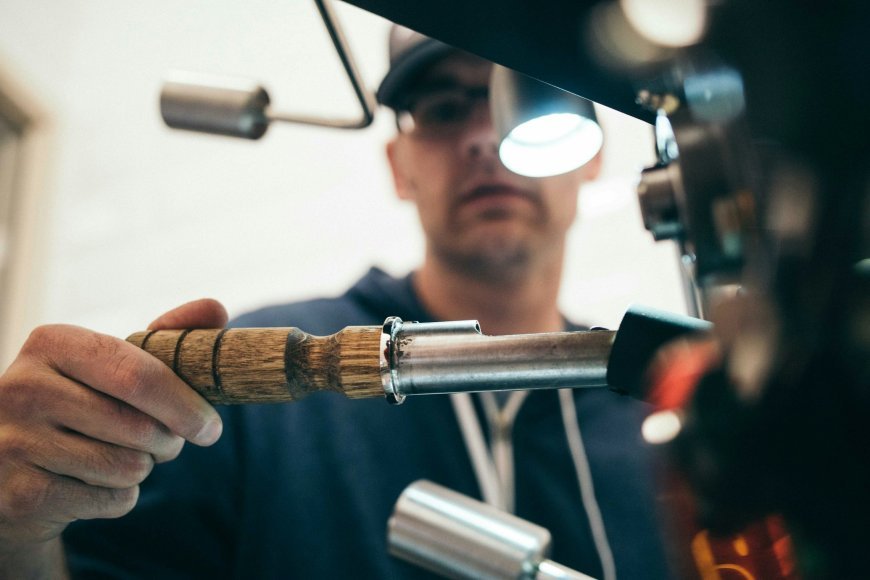US Manufacturing Investment Dips Amid Clean Tech Cancellations

The clean technology sector, once seen as the golden child of innovation and sustainability, is facing significant headwinds as companies in the United States have scrapped a staggering $5 billion worth of manufacturing projects in the second quarter of 2023. This abrupt halt in investment not only highlights the challenges within the clean tech landscape but also reflects a broader trend of retreat in the manufacturing industry as a whole.
According to recent reports, the clean tech industry, which encompasses everything from renewable energy technologies to electric vehicle production, has been hit hard by a combination of economic uncertainty, supply chain disruptions, and shifting market dynamics. These factors have collectively led to a cautious approach among investors and companies that were previously eager to dive into clean technology manufacturing.
The $5 billion in canceled projects represents a significant contraction in an industry that was riding high on the promise of green energy solutions and sustainable practices. In recent years, clean tech had garnered substantial interest and investment, fueled by a global push for sustainability and reducing carbon footprints. However, the optimism that characterized the sector has been dampened as businesses grapple with rising costs, regulatory hurdles, and fluctuating demand.
This pullback in clean tech manufacturing mirrors trends observed across the broader manufacturing sector, which has also experienced a slowdown. According to the Institute for Supply Management, manufacturing activity has been declining, with many companies citing a lack of demand and increased operational challenges as key factors. The uncertainty surrounding economic conditions, including inflation and interest rates, has left many businesses wary of making substantial investments.
Moreover, the clean technology sector is not immune to the geopolitical tensions that have permeated global supply chains. The ongoing repercussions of the COVID-19 pandemic, coupled with the conflict in Ukraine and trade tensions with China, have created an environment where sourcing materials and components has become increasingly complex. These challenges have led companies to reevaluate their expansion plans and, in many cases, to scale back on ambitious manufacturing projects.
The $5 billion worth of canceled projects encompasses a range of initiatives, including solar panel manufacturing, battery production for electric vehicles, and wind turbine assembly. For instance, several solar manufacturers have cited rising costs for raw materials and labor as significant deterrents to proceeding with new facilities. The battery manufacturing sector, crucial for the transition to electric vehicles, has similarly faced obstacles, with companies reassessing their supply chains and production capabilities in light of recent market fluctuations.
In addition to economic factors, the current political climate in the U.S. has also played a role in shaping the landscape for clean tech investments. While the Biden administration has pushed for more aggressive climate policies and incentives for clean energy, the uncertainty surrounding legislative outcomes has led to a cautious stance among companies. The lack of a clear, consistent policy framework has made it difficult for businesses to commit to large-scale manufacturing projects, as they weigh the risks against potential rewards.
Despite the recent setbacks, industry experts remain optimistic about the long-term prospects for clean technology. The urgency of addressing climate change and the growing demand for sustainable solutions remain powerful motivators for innovation and investment. Many believe that the current pullback may simply be a temporary adjustment, allowing companies to recalibrate their strategies and focus on more sustainable growth paths.
As businesses reevaluate their positions, some are finding innovative ways to navigate the challenges. For instance, a number of companies are pivoting towards more localized supply chains, seeking to reduce dependency on international suppliers and mitigate risks associated with global disruptions. Additionally, advancements in technology and manufacturing processes are opening new avenues for efficiency and cost reduction, making clean tech projects more viable in a shifting economic landscape.
Moreover, the increasing awareness of environmental issues among consumers and investors is likely to drive demand for cleaner technologies in the long run. As the world continues to grapple with climate change, the pressure on companies to adopt sustainable practices will only intensify. This could lead to a resurgence in clean tech investments as businesses align themselves with the expectations of a more environmentally conscious market.
In conclusion, the recent cancellation of $5 billion in clean tech manufacturing projects in the U.S. serves as a stark reminder of the challenges facing the sector amid broader manufacturing pullbacks. While the current landscape may seem daunting, the long-term potential for clean technology remains robust. As companies adapt to evolving market conditions and seek innovative solutions to overcome obstacles, the clean tech sector may very well emerge from this period of uncertainty stronger and more resilient than before.
What's Your Reaction?
 Like
0
Like
0
 Dislike
0
Dislike
0
 Love
0
Love
0
 Funny
0
Funny
0
 Angry
0
Angry
0
 Sad
0
Sad
0
 Wow
0
Wow
0









































